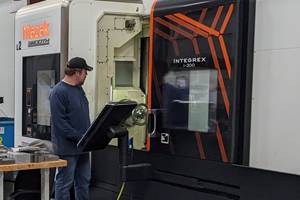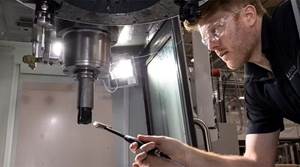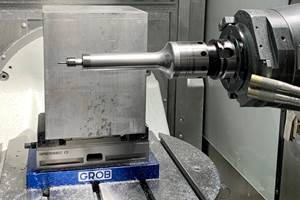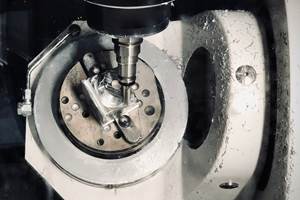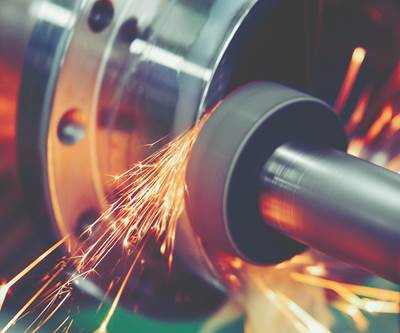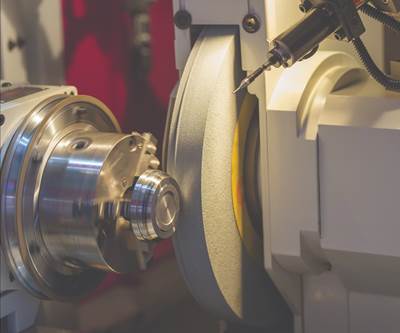Buying a Grinder: Applications for Grinding Machines
How are grinding machines used in aerospace, medical, die/mold and other industries? Here is a rundown of some common applications.
Share




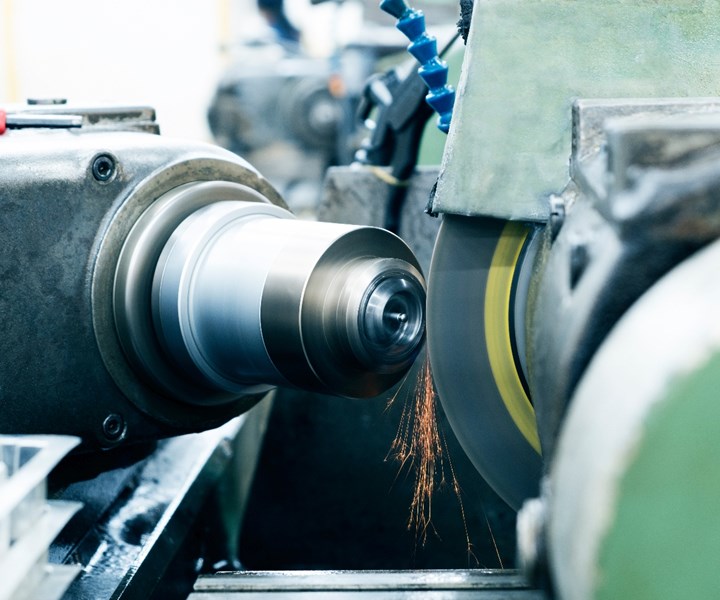
This blog post was adapted from an article by Barry Rogers published in the Machine/Shop supplement to November 2018’s Modern Machine Shop magazine.
Previous posts have covered grinding machine construction and the abrasive process in more detail. But in what areas of manufacturing should grinding applied?
Automotive
Common automotive applications for OD and ID grinding include brake cylinders, brake pistons, hydraulic steering pistons, selector shafts, spline and gear shafts, connecting rods, camshafts, and crank shafts. Precision grinding of outside shaft diameters provides near-perfect fit between gears, bearings and other mating components. OD grinding of these components enhances concentricity of the shaft to its centerline while ensuring that accompanying diameters are concentric to one another. Offset ODs for non-concentric diameters, such as crank pin journals and cam lobes, are also precision ground. For this application, special crank and camshaft grinders are required. They can be programmed to grind both on-center and offset diameters on the same shaft. Likewise, ID grinding is required for precise fitting of brake cylinders, connecting rods and other applications.
Here are some more specialized applications:
Medical
The medical industry uses grinding to produce surgical drills, dental drill bits, hip stems, hip balls, hip sockets, femoral knee joints and needles.
Aerospace
The aerospace industry is known for workpiece materials that are tough to machine with conventional cutting tools and processes. These high-strength, high-temperature materials enable components to survive in the severe environment of aerospace engines. However, the same attributes that make these materials difficult to machine are also likely to make them suitable for grinding. Turbine rings, turbine shafts, and inner and outer rings are a few of the aerospace components which are commonly precision ground.
Machine Tool Manufacturers
Machine tool manufacturers use ground components for spindles, linear guideways, ballscrews, Hirth couplings in indexers and rotary tables, roller bearings, cams, racks, valve spools, and pistons.
Die/Mold Industry
The die/mold industry uses grinding to produce thread dies, stamping dies, press brake tools, draw dies, thread rolling dies and mold inserts, along with many other die and mold components.
Tooling Industry
The tooling industry that supports the die/mold and machine tool industries uses precision grinding to produce three- and four-jaw chucks, profile inserts, step drills, drill points, reamers, taps, ring gages and collets. ISO and HSK adapters and shanks for toolholding also require grinding.
Note that when milling or turning with conventional machines and tooling, part tolerances and surface quality are degraded as tooling inserts wear. In contrast, a grinding wheel can be dressed frequently to keep the cutting edges of the abrasive sharp and the shape of the wheel constant, resulting in a consistent finish and close dimensional accuracy.
Related Content
5 Tips for Running a Profitable Aerospace Shop
Aerospace machining is a demanding and competitive sector of manufacturing, but this shop demonstrates five ways to find aerospace success.
Read MoreHow to Mitigate Chatter to Boost Machining Rates
There are usually better solutions to chatter than just reducing the feed rate. Through vibration analysis, the chatter problem can be solved, enabling much higher metal removal rates, better quality and longer tool life.
Read MoreHigh RPM Spindles: 5 Advantages for 5-axis CNC Machines
Explore five crucial ways equipping 5-axis CNC machines with Air Turbine Spindles® can achieve the speeds necessary to overcome manufacturing challenges.
Read MoreHow to Successfully Adopt Five-Axis Machining
While there are many changes to adopt when moving to five-axis, they all compliment the overall goal of better parts through less operations.
Read MoreRead Next
Buying a Grinder: The Appeal and Construction of a Grinding Machine
The first step to buying a new grinding machine is understanding how it works. Learn more about the makeup of grinding machines, including multi-spindle machines.
Read MoreBuying a Grinder: The Abrasive Process
The prospective buyer of a new grinding machine should be aware of the ins and outs of the abrasive process, how abrasive bonds work and the various forms of wheel dressing.
Read MoreSetting Up the Building Blocks for a Digital Factory
Woodward Inc. spent over a year developing an API to connect machines to its digital factory. Caron Engineering’s MiConnect has cut most of this process while also granting the shop greater access to machine information.
Read More



















.jpg;maxWidth=300;quality=90)



